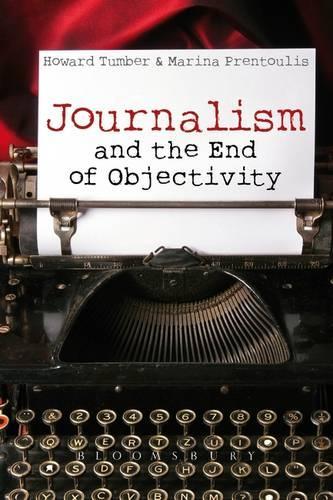
Journalism and the End of Objectivity
(Paperback)
Publishing Details
Journalism and the End of Objectivity
By (Author) Howard Tumber
By (author) Marina Prentoulis
Bloomsbury Publishing PLC
Bloomsbury Academic
2nd March 2028
United Kingdom
Classifications
Tertiary Education
Non Fiction
Media studies: journalism
Communication studies
Sociology
070.4
Physical Properties
Paperback
208
Width 156mm, Height 234mm
Description
News objectivity has been debated for many decades. Yet the new communications environment, marked by technological, social and political innovations, invites us to re-examine objectivity. To what extent can news reporting be objective What is objectivity How is it affected by the rise of new forms of journalism, such as citizen and participatory journalism Tumber and Prentoulis set out to re-work and define the concept and how it correlates to today's 'crisis' in journalism. Each of the key types of journalism are analysed, including literary journalism, public journalism, peace journalism, online journalism and journalism of attachment. The book opens up new insights and new understanding of the changing world of journalism. It will be important for all students and researchers interested in the sociology of journalism, news reporting and communication.
Author Bio
Howard Tumber is Professor of Sociology in the Department of Sociology at City University, UK. He was Dean of the School of Social Sciences for five years 1999-2004. Previous to that he was Head of the Department of Sociology 1996-1999. He is the author of seven books and has published widely in the field of the sociology of news and journalism. He is also founder and co-editor of the journal, Journalism: Theory, Practice and Criticism. His recent work concerns the role of journalists and the reporting of international conflict. Marina Prentoulis is Lecturer in Media and Politics at the University of East Anglia, UK. She has lectured at a number of universities including City University, Open University and the University of Middlesex and is currently Honorary Visiting Fellow at the Graduate School of Journalism, City University.
